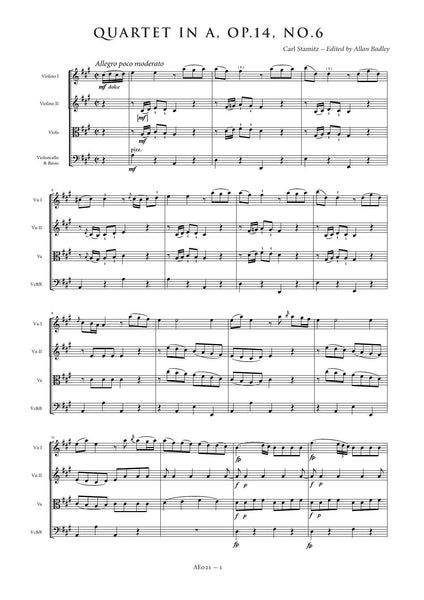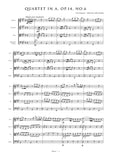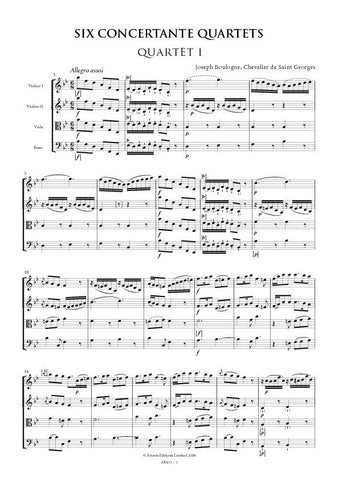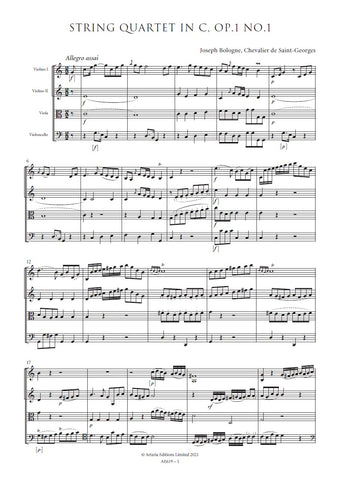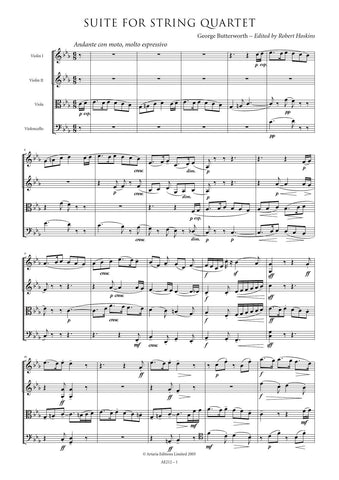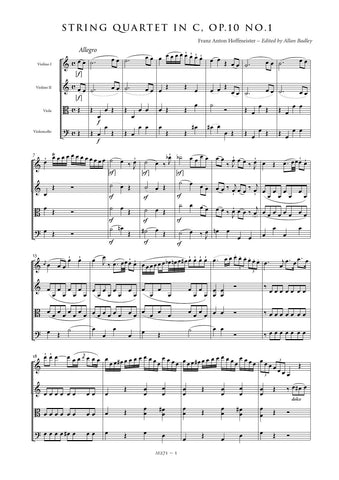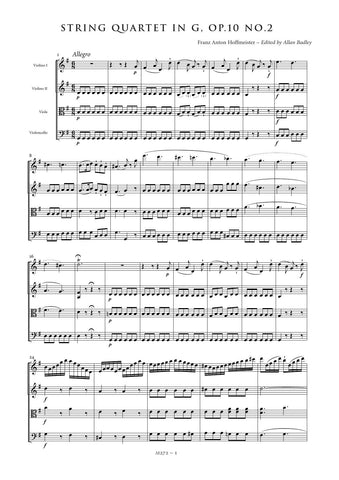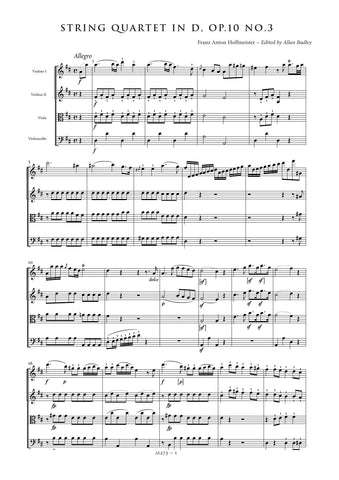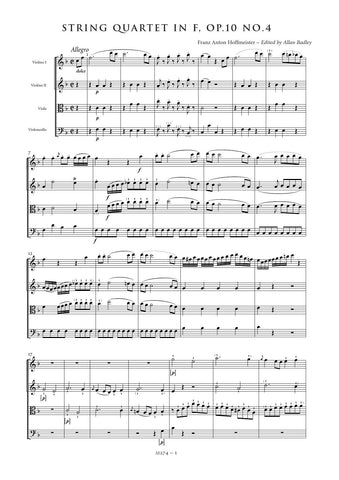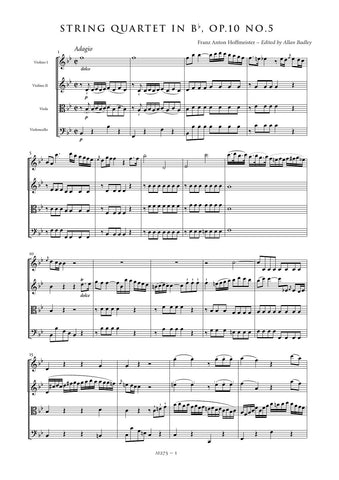Details
|
Stamitz composed nearly as much chamber music as he did the works for orchestra upon which his reputation today largely rests. The set of six quartets op.14 published in Strasbourg and in Paris by Sieber in 1776,c onsists of two orchestral quartets,tw o concertante quartets and two quartets in which the first part may be played by a flute,oboe, violin or clarinet. The title page reads: Six / QUATUORS / A deux Violons Alto Et Basse / dont deux a grand Orchestre, deux Concertants, et deux dont les / premieres partie peuvent se jouer par une flute, hautbois, Violon, ou / Clarinette / DEDIÉS / A Son Altesse Electorale / Maximilien Joseph / Duc de Baviere Archi - Echanson de L'Empire, &c.&;c. / Composs. / PAR. C. STAMITZ . OEuvre XIV ...' The two works in the set designated 'orchestral' quartets (Op.14 Nos 1 & 4) have a genuinely symphonic quality in their outer movements; much use is made of dense,busy string textures, dramatic dynamic shifts and urgent crescendos in the best Mannheim traditions. The 'concertante' quartets (Op.14 Nos 2 & 5),b y comparison, are by no means symphonic in conception although the frequent use of the extreme upper register of the solo cello seems to require a heavier grounding in the tutti sections. Although the 'solo' cues which appear sporadically throughout the parts may not specifically imply a concertino - ripieno relationship, the two quartets do work very satisfactorily as scaled-down sinfonie concertante with a little judicious editorial license. The two remaining quartets,ho wever,ar e clearly intended for solo performers and Stamitz takes care that the first part is idiomatically non-committal in order to be satisfactory for several solo instruments.
This edition is based a copy of the Sieber print now preserved in The British Library in London (Sig. g.412.a.(8.) ). In the absence of both the autograph score and an authentic set of parts,the edition presents as faithfully as possible the intentions of the composer as transmitted in the Sieber print. The style and notation of articulation and dynamic markings have been standardized throughout and,wher e missing,r econstructed from parallel passages. These are indicated by the use of dotted slurs or brackets where appropriate. Like most eighteenth-century sources,the Sieber print is inconsistent at times in its notation of appoggiature ; these too have been standardized to minimize confusion. Obvious wrong notes have been corrected without comment; editorial emendations with no authority from thesource are placed within brackets.
Allan Badley
|




